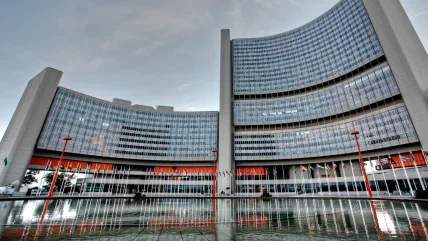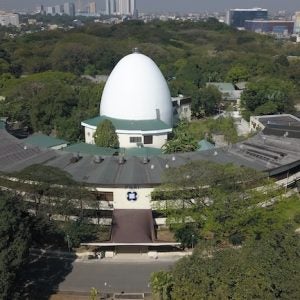
The International Atomic Energy Agency (IAEA) has completed its first International Physical Protection Advisory Service (IPPAS) mission to Zambia at the request of the government. The 12-day mission, hosted by Zambia’s Radiation Protection Authority (RPA), reviewed the nuclear security regime with regard to the security of radioactive material, associated facilities and activities, including transport.
Zambia uses nuclear science and technology for peaceful purposes in various sectors, including agriculture, health, mining, education and environment. The scope of the mission also included a review of the legislative and regulatory framework for the security of radioactive material; regulatory practices in licensing, inspection and enforcement; and coordination between stakeholders involved in nuclear security. In addition, the review covered security systems and practices in place at four selected facilities.
The IPPAS team peer reviewed the country’s implementation of the Convention on Physical Protection of Nuclear Material (CPPNM), which Zambia acceded to in 2016, and of the Code of Conduct on the Safety & Security of Radioactive Sources.
The team visited facilities with high activity radioactive sources including the Cancer Diseases Hospital and the National Institute for Scientific & Industrial Research in Lusaka. The team also observed activities in the Zambia Consolidated Copper Mine Investments Holding (ZCCM-IH) Waste Storage Facility in the town of Kalulushi and the Alfred H Knight industrial company in the town of Kitwe.
The IAEA noted that the nuclear security regime in Zambia is established. The team provided recommendations and suggestions to support Zambia in enhancing and sustaining nuclear security. Good practices were identified that can serve as examples to other IAEA member states to help strengthen their nuclear security activities.
The IPPAS team was led by Abdou Salam Yahaya Bako, Divisional Commissioner of Police and Director of the Radiation Protection & Nuclear Security Department at the High Authority of Niger for Atomic Energy, and included four other experts from Egypt, Ghana, the USA and Zimbabwe, as well as one IAEA staff member.
The IPPAS team met in Lusaka with senior officials from RPA, as well as with representatives of ministries and governmental organisations, including the Ministry of Foreign Affairs and International Cooperation, the Ministry of Defence, the National Anti-Terrorism Centre, the Zambia Police Service, Ministry of Transport and Logistics, Ministry of Home Affairs and the Office of the Vice President.
Elena Buglova, Director of the IAEA Division of Nuclear Security said the mission in Zambia, which was the 100th IPPAS mission, was an important milestone for IPPAS. “It is an important moment for the host country as well, because for the first time an international team of experts is invited to Zambia to assess the physical protection systems related to the security of radioactive material, associated facilities and associated activities, confirming the Government’s commitment to strengthen the national nuclear security regime.”
“The IPPAS team advice will facilitate Zambia’s efforts towards enhancing the safe and secure applications of nuclear science and technology in the country. In addition, it will help strengthen Zambia’s nuclear security regime which is key for building confidence among the regulatory body, the operators, the public and other national stakeholders,” said Dr Boster D. Siwila, Executive Director of the RPA. Zambia was the 60th country to host an IPPAS mission.
Image: Members of the IPPAS team visited the Cancer Diseases Hospital in Lusaka (courtesy of Radiation Protection Authority, Zambia)






